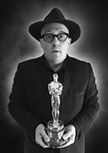
David Suzuki
Topics
Scientist and Sustainable Ecology Ambassador
Passionate environmentalist, scientist and media figure, David is a world leader in sustainable ecology and has received consistent international acclaim and award for his work. He has produced a number of fascinating television series, and authored more than 30 publications. David’s self titled Foundation aims to protect the planet by collaborating with a range of research, business, governments and industry bodies to find sustainable ways of living. David’s wealth of knowledge and experience provides a compelling and motivating presentation.
David Suzuki, co-founder of the David Suzuki Foundation, is an award-winning scientist, environmentalist, and broadcaster. He is renowned for radio and television programs that explain the complexities of the natural sciences in a compelling but easily understood way.
Dr. Suzuki is a geneticist. He graduated from Amherst College in 1958 with an honors BA in biology, followed by a PhD in zoology from the University of Chicago in 1961. He held a research associateship in the biology division of Tennessee's Oak Ridge National Lab from 1961 to 1962, was an assistant professor in genetics at the University of Alberta from 1962 to 1963, and since then has been a faculty member of the University of British Columbia, where he is currently professor emeritus.
In 1972, he was awarded the EWR Steacie Memorial Fellowship for being an outstanding research scientist in Canada under the age of 35 and held it for three years. He has won numerous academic awards and holds 25 honorary degrees in Canada, the US, and Australia. He was elected to the Royal Society of Canada and is a companion of the Order of Canada.
Dr. Suzuki has written 52 books, including 19 for children. His 1976 textbook An Introduction to Genetic Analysis remains the most widely used genetics textbook in the US and has been translated into Italian, Spanish, Greek, Indonesian, Arabic, French, and German.
Dr. Suzuki has consistently received high acclaim for his 30 years of award-winning work in broadcasting. In 1974, he developed and hosted the long-running popular science program "Quirks and Quarks" on CBC Radio. He has since presented two influential documentary CBC radio series on the environment: "It's a Matter of Survival" and "From Naked Ape to Superspecies." His national television career began with CBC in 1971 when he wrote and hosted Suzuki on Science. He was the host of Science Magazine from 1974 to 1979, then created and hosted a number of television specials, and in 1979 became the host of the award-winning series The Nature of Things with David Suzuki. He has won four Gemini Awards as best host of different Canadian television series. His eight-part television series A Planet for the Taking won an award from the United Nations. His eight-part BBC/PBS series The Secret of Life was praised internationally, as was his five-part series The Brain for the Discovery Channel. On June 10, 2002, he received the John Drainie Award for broadcasting excellence.
Dr. Suzuki is also recognized as a world leader in sustainable ecology. He is the recipient of UNESCO's Kalinga Prize for Science, the United Nations' Environment Program Medal, the United Nations' Environment Program's Global 500 Award, and the Right Livelihood Award, which is considered the alternative Nobel Prize.
Presentation Topics Include
- The Nature of Things
- Good News for a Change: Hope for a Troubled Planet



























